The Formation of Educational Editions for the Socio-Economic

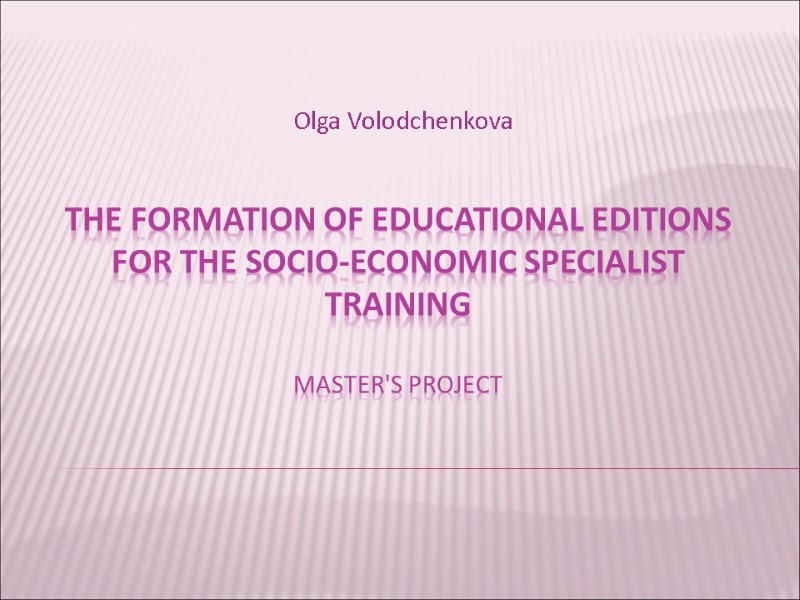
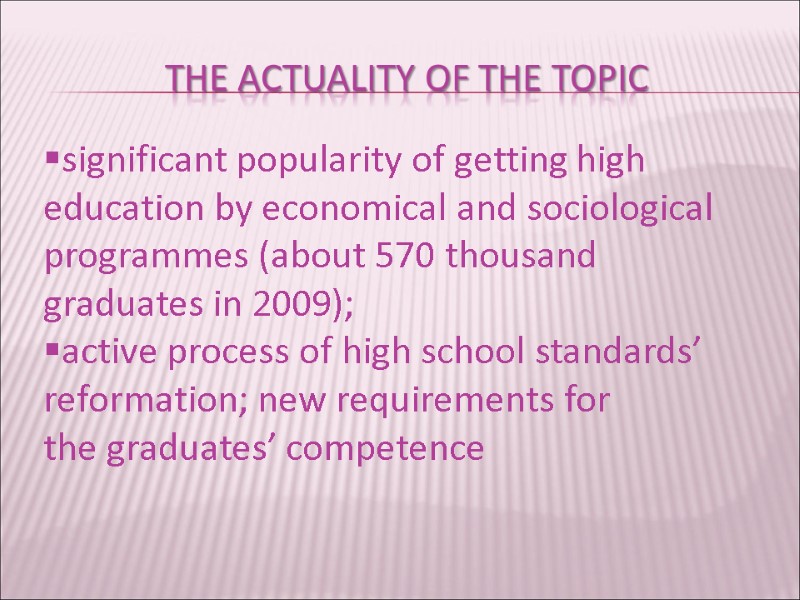
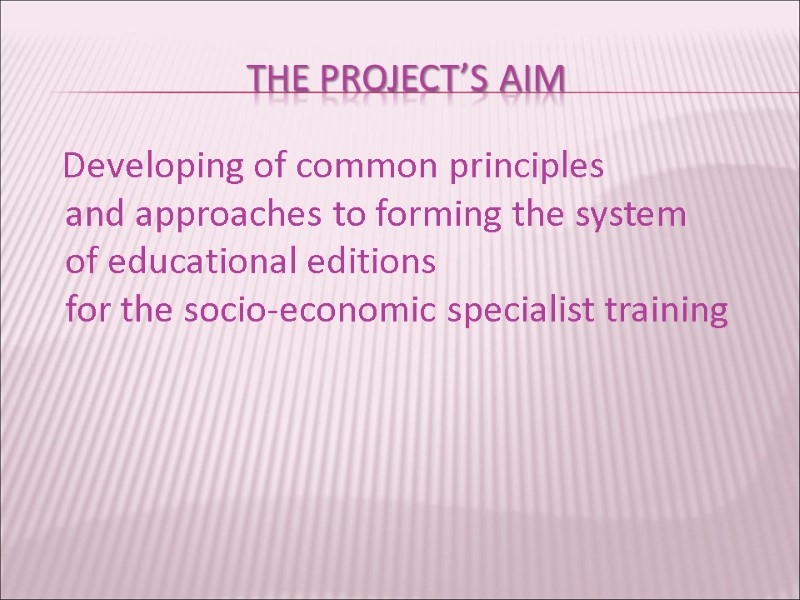
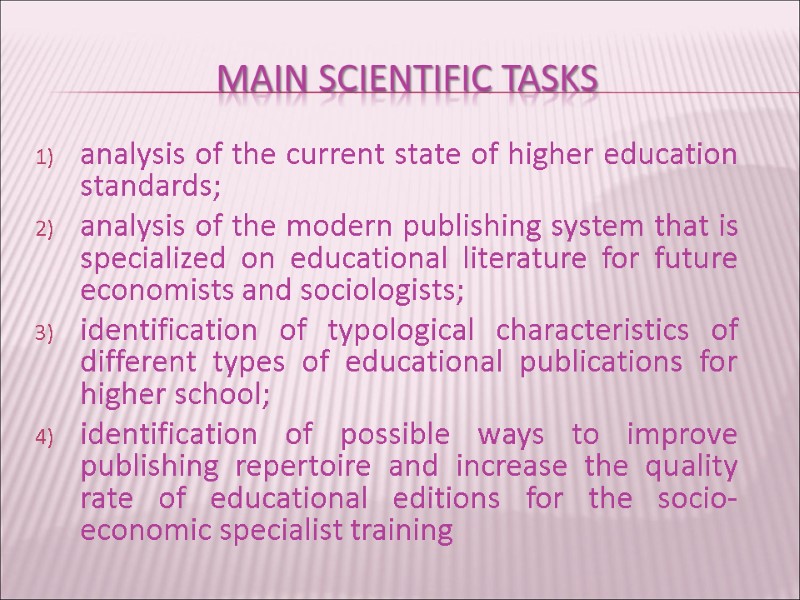
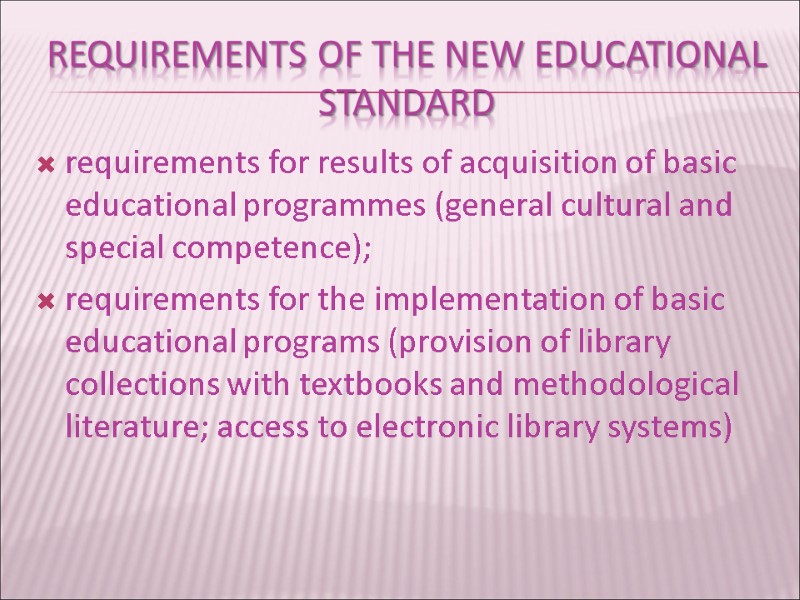
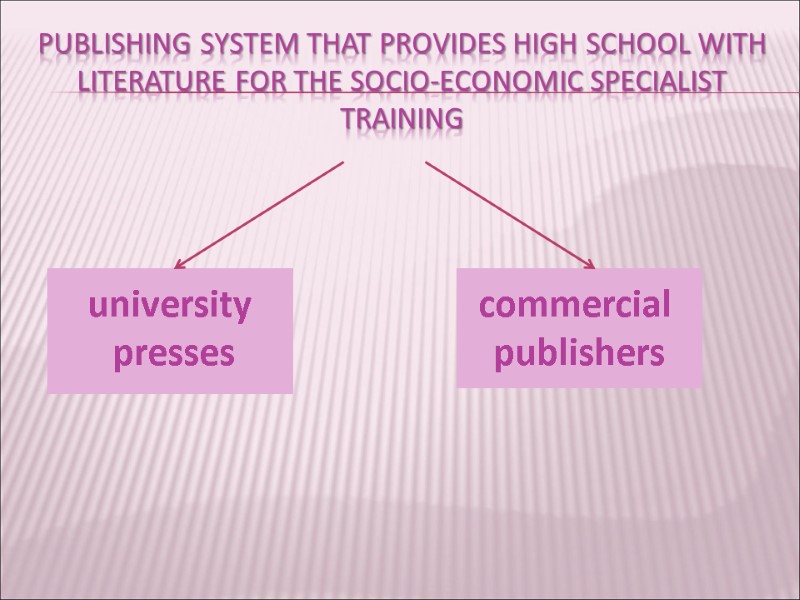
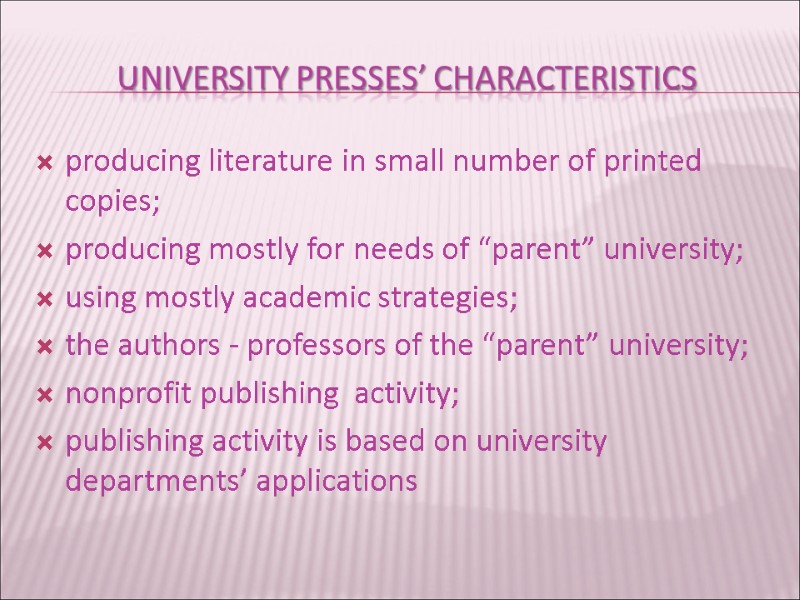
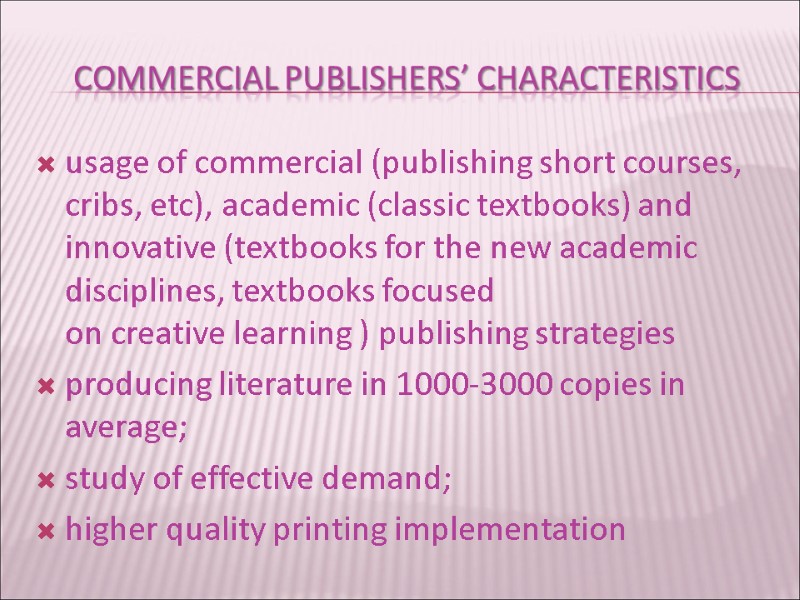
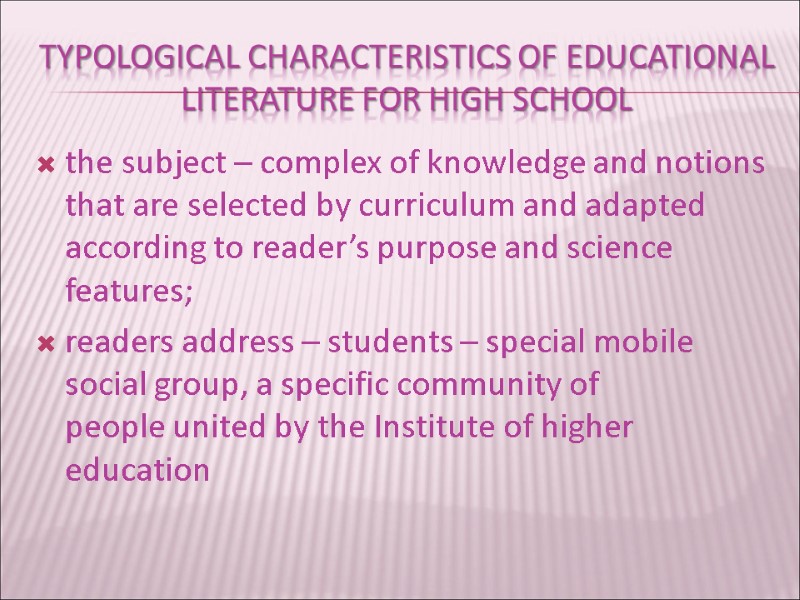
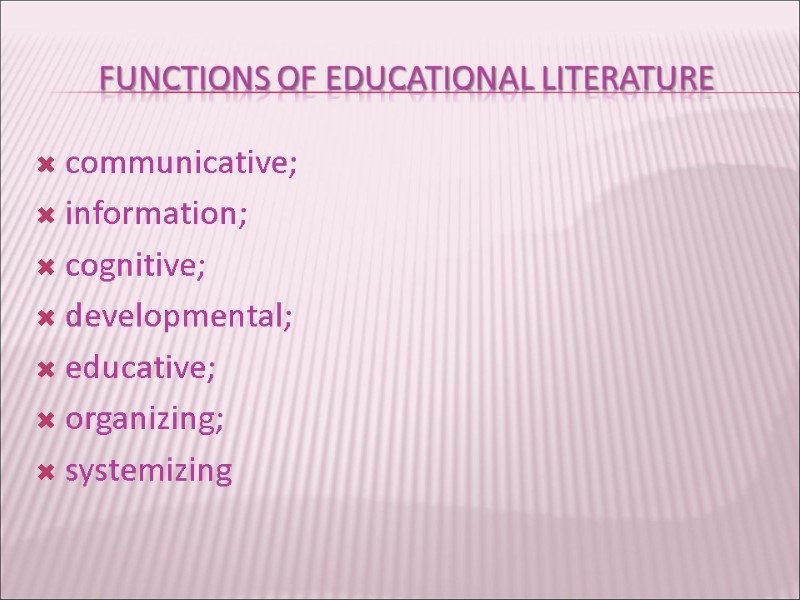
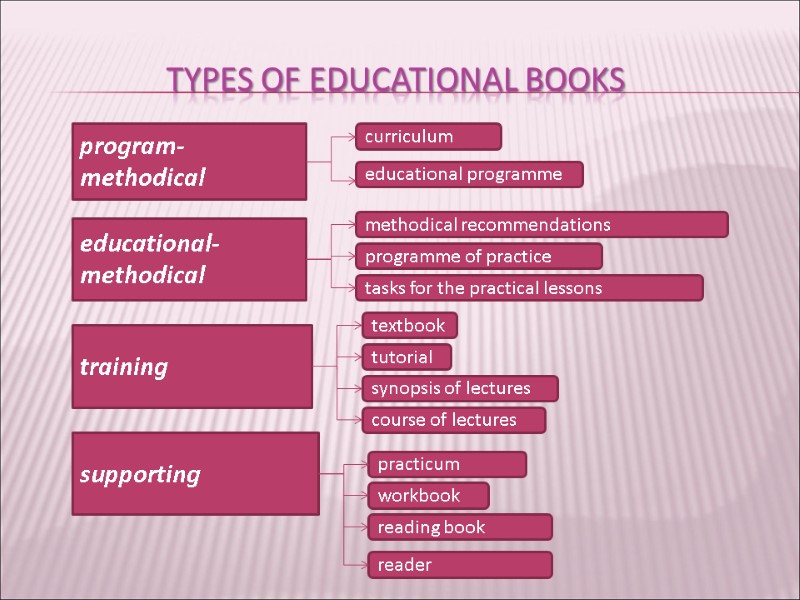
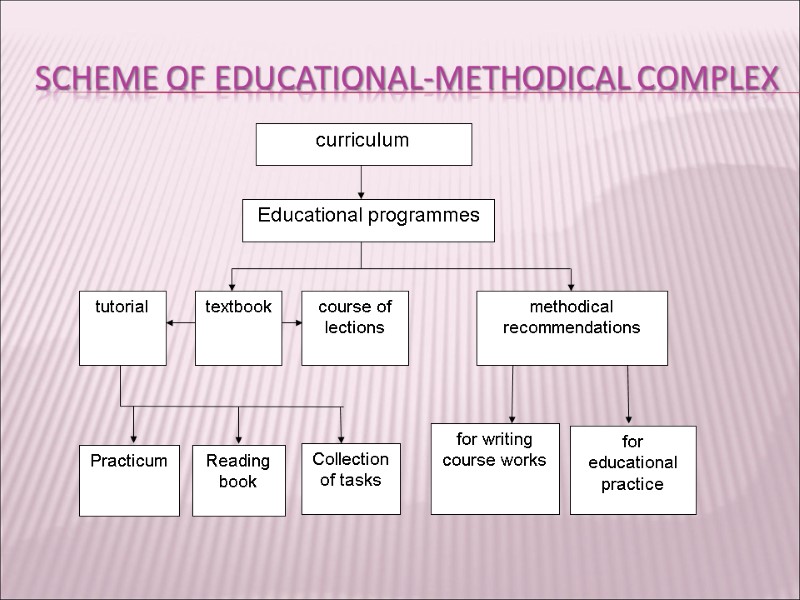
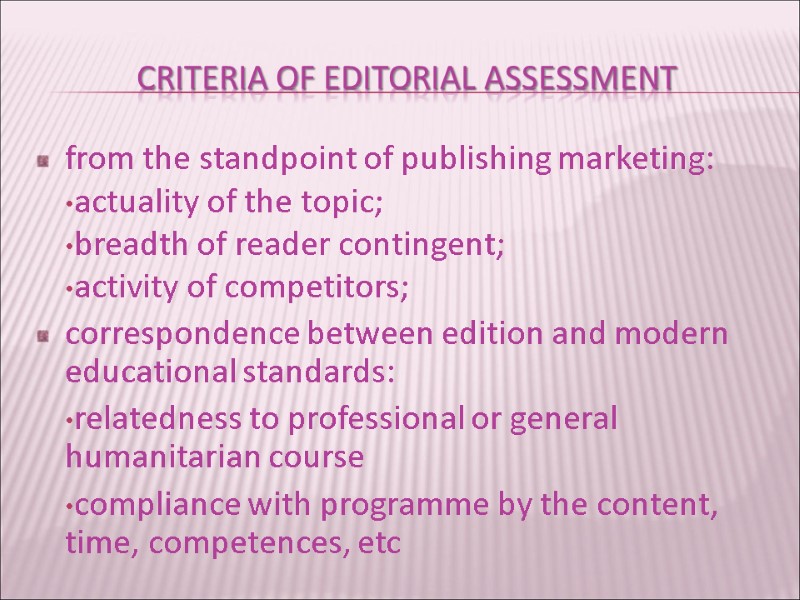
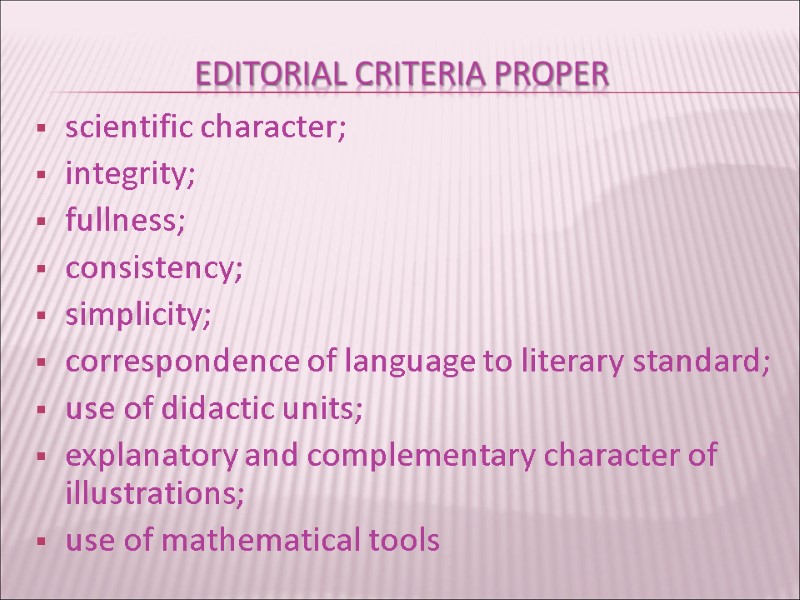
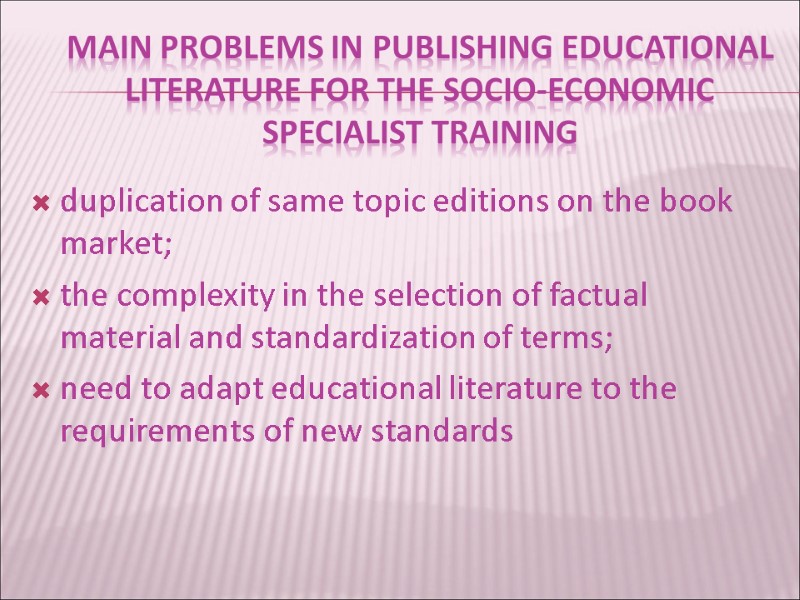
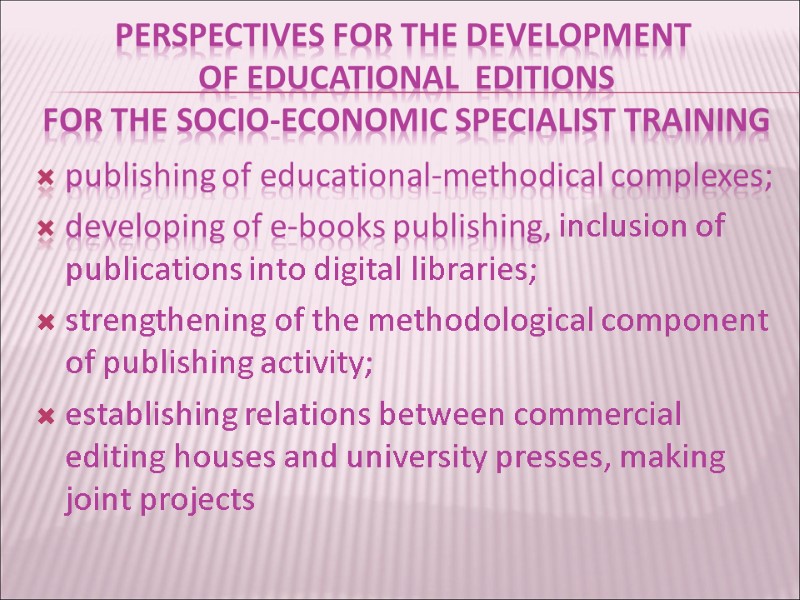

11952-the_formation_of_educational_editions.ppt
- Количество слайдов: 17
 The Formation of Educational Editions for the Socio-Economic Specialist Training Master's Project Olga Volodchenkova
The Formation of Educational Editions for the Socio-Economic Specialist Training Master's Project Olga Volodchenkova
 the actuality of the topic significant popularity of getting high education by economical and sociological programmes (about 570 thousand graduates in 2009); active process of high school standards’ reformation; new requirements for the graduates’ competence
the actuality of the topic significant popularity of getting high education by economical and sociological programmes (about 570 thousand graduates in 2009); active process of high school standards’ reformation; new requirements for the graduates’ competence
 The project’s aim Developing of common principles and approaches to forming the system of educational editions for the socio-economic specialist training
The project’s aim Developing of common principles and approaches to forming the system of educational editions for the socio-economic specialist training
 Main scientific tasks analysis of the current state of higher education standards; analysis of the modern publishing system that is specialized on educational literature for future economists and sociologists; identification of typological characteristics of different types of educational publications for higher school; identification of possible ways to improve publishing repertoire and increase the quality rate of educational editions for the socio-economic specialist training
Main scientific tasks analysis of the current state of higher education standards; analysis of the modern publishing system that is specialized on educational literature for future economists and sociologists; identification of typological characteristics of different types of educational publications for higher school; identification of possible ways to improve publishing repertoire and increase the quality rate of educational editions for the socio-economic specialist training
 requirements of the new educational standard requirements for results of acquisition of basic educational programmes (general cultural and special competence); requirements for the implementation of basic educational programs (provision of library collections with textbooks and methodological literature; access to electronic library systems)
requirements of the new educational standard requirements for results of acquisition of basic educational programmes (general cultural and special competence); requirements for the implementation of basic educational programs (provision of library collections with textbooks and methodological literature; access to electronic library systems)
 Publishing system that provides high school with literature for the Socio-Economic Specialist Training university presses commercial publishers
Publishing system that provides high school with literature for the Socio-Economic Specialist Training university presses commercial publishers
 University presses’ characteristics producing literature in small number of printed copies; producing mostly for needs of “parent” university; using mostly academic strategies; the authors - professors of the “parent” university; nonprofit publishing activity; publishing activity is based on university departments’ applications
University presses’ characteristics producing literature in small number of printed copies; producing mostly for needs of “parent” university; using mostly academic strategies; the authors - professors of the “parent” university; nonprofit publishing activity; publishing activity is based on university departments’ applications
 Commercial publishers’ characteristics usage of commercial (publishing short courses, cribs, etc), academic (classic textbooks) and innovative (textbooks for the new academic disciplines, textbooks focused on creative learning ) publishing strategies producing literature in 1000-3000 copies in average; study of effective demand; higher quality printing implementation
Commercial publishers’ characteristics usage of commercial (publishing short courses, cribs, etc), academic (classic textbooks) and innovative (textbooks for the new academic disciplines, textbooks focused on creative learning ) publishing strategies producing literature in 1000-3000 copies in average; study of effective demand; higher quality printing implementation
 Typological characteristics of educational literature for high school the subject – complex of knowledge and notions that are selected by curriculum and adapted according to reader’s purpose and science features; readers address – students – special mobile social group, a specific community of people united by the Institute of higher education
Typological characteristics of educational literature for high school the subject – complex of knowledge and notions that are selected by curriculum and adapted according to reader’s purpose and science features; readers address – students – special mobile social group, a specific community of people united by the Institute of higher education
 Functions of educational literature communicative; information; cognitive; developmental; educative; organizing; systemizing
Functions of educational literature communicative; information; cognitive; developmental; educative; organizing; systemizing
 Types of educational books program-methodical educational-methodical training supporting workbook reader reading book curriculum educational programme methodical recommendations programme of practice tasks for the practical lessons practicum textbook tutorial synopsis of lectures course of lectures
Types of educational books program-methodical educational-methodical training supporting workbook reader reading book curriculum educational programme methodical recommendations programme of practice tasks for the practical lessons practicum textbook tutorial synopsis of lectures course of lectures
 scheme of educational-methodical complex
scheme of educational-methodical complex
 Criteria of editorial assessment from the standpoint of publishing marketing: actuality of the topic; breadth of reader contingent; activity of competitors; correspondence between edition and modern educational standards: relatedness to professional or general humanitarian course compliance with programme by the content, time, competences, etc
Criteria of editorial assessment from the standpoint of publishing marketing: actuality of the topic; breadth of reader contingent; activity of competitors; correspondence between edition and modern educational standards: relatedness to professional or general humanitarian course compliance with programme by the content, time, competences, etc
 Editorial criteria proper scientific character; integrity; fullness; consistency; simplicity; correspondence of language to literary standard; use of didactic units; explanatory and complementary character of illustrations; use of mathematical tools
Editorial criteria proper scientific character; integrity; fullness; consistency; simplicity; correspondence of language to literary standard; use of didactic units; explanatory and complementary character of illustrations; use of mathematical tools
 Main problems in publishing educational literature for the Socio-Economic Specialist Training duplication of same topic editions on the book market; the complexity in the selection of factual material and standardization of terms; need to adapt educational literature to the requirements of new standards
Main problems in publishing educational literature for the Socio-Economic Specialist Training duplication of same topic editions on the book market; the complexity in the selection of factual material and standardization of terms; need to adapt educational literature to the requirements of new standards
 perspectives for the development of educational Editions for the Socio-Economic Specialist training publishing of educational-methodical complexes; developing of e-books publishing, inclusion of publications into digital libraries; strengthening of the methodological component of publishing activity; establishing relations between commercial editing houses and university presses, making joint projects
perspectives for the development of educational Editions for the Socio-Economic Specialist training publishing of educational-methodical complexes; developing of e-books publishing, inclusion of publications into digital libraries; strengthening of the methodological component of publishing activity; establishing relations between commercial editing houses and university presses, making joint projects
 Thank you for your attention!
Thank you for your attention!

